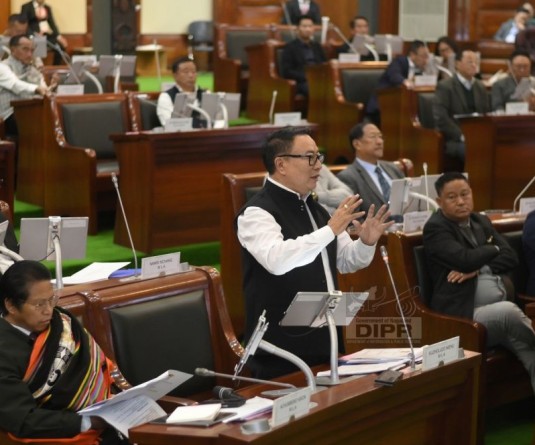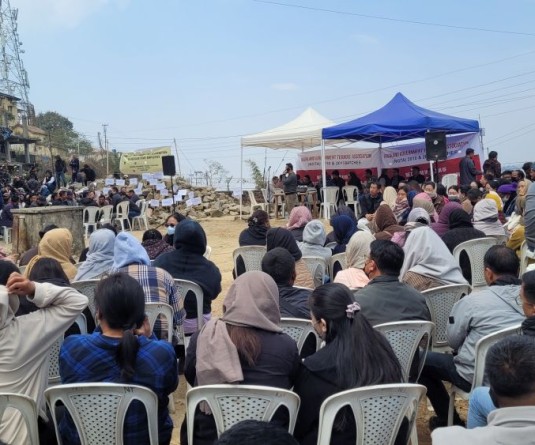
Excessive consumption of tobacco, alcohol, urbanization, lifestyle change probable causes
Morung Express News
Dimapur | June 2
“Lifestyle changes, population increase, urbanization, industrialization, prevalence of non-communicable diseases and consumption of alcohol and tobacco have increased cancer cases in the country and particularly in the Northeastern states and Nagaland,” Dr. AC Kataki, Director of the Dr B Borooah Cancer Institute (BBCI), Guwahati, indicated.
During a press meet, Dr. Kataki pointed out that cancer of nasopharynx, stomach and oesophagus in males and cervix and breast cancer in women were highly prevalent in Nagaland.
He was speaking at the Continuing Medical Education (CME), an outreach programme for management of Common Cancers of the North East, organized by BBCI and National Centre for Disease Informatics & Research (NCDIR, ICMR), Bengaluru, in collaboration with Eden Medical Centre (EMC), Dimapur and Indian Medical Association (Dimapur Chapter) at Eden Medical Centre Conference Hall here today.
Global Adult Tobacco Survey (GATS) reported 40% Tobacco related Cancer among males and 13% among females in Nagaland in 2017.
National Tobacco Control Programme, Kohima, had recently reported during the World No Tobacco Day commemoration that Nagaland’s smoking rate has reduced from 31.5% to 13.2% and current smokeless tobacco use has gone down from 45.37 % to 39%. Nagaland, however, still has the highest use of pan masala with tobacco at 21%. This includes 24% men and 18% women who use pan masala.
Nagaland’s status from being the second highest consumer of tobacco (56.8%) in the country has significantly improved and moved down to 7th rank (43.3%) in North East India and 8th position in the country, as per data provided by GATS.
Awareness & treatment
According to Dr. Kataki, public awareness is essential for early detection and treatment of cancer.
More than 70% of cancer patients in Nagaland avail treatment outside the state of Nagaland. This could be, Dr. Kataki stated, due to lack of human resource in the field of oncology and lack of infrastructural and technical facility.
Prioritizing the generation of trained staff, a two year Post-Graduate Fellowship Programme at BBCI selected five candidates from Nagaland and five others from other North East states, he informed.
During the press meet he also apprised that most of the common cancers in the North East are amenable for prevention and early detection by creating public awareness and increasing human resource in the field of oncology was the need of the hour.
Dr. Prashant Mathur, Director of NCDIR, IMCR, while pointing out that systematic data collection is important, he lamented the lack of registry of cancer deaths and inadequate cancer statistics which, he said, “are impediments to quality care and research for cancer.”
He added that only 15% of deaths in Nagaland were medically certified. Reiterating the need for strengthening health facilities in the North East and prevention through awareness, reliable statistical data to influence state actors to act and disseminate the alarming rate of cancer prevalence and cancer death to the masses was another necessity, he informed.






